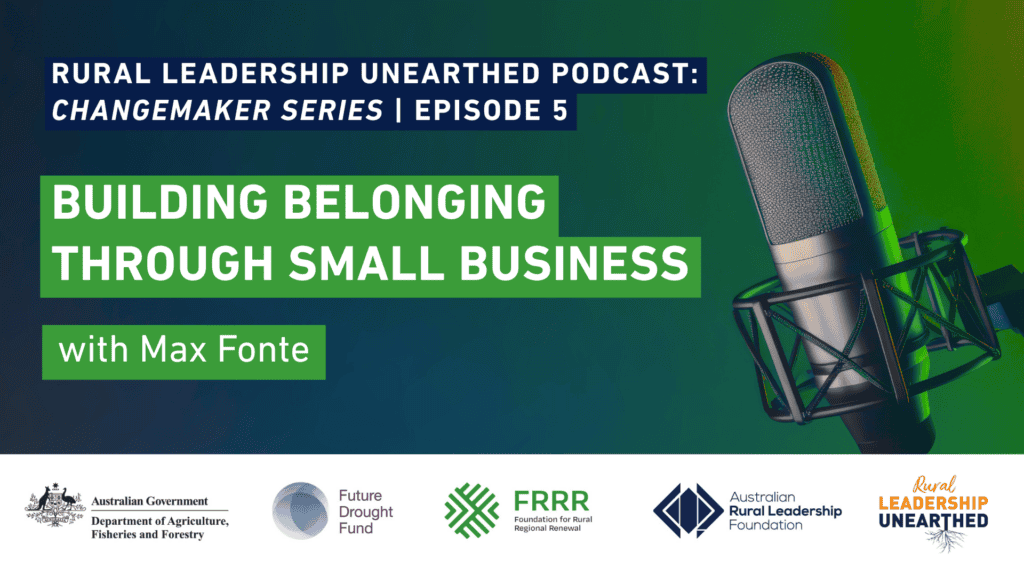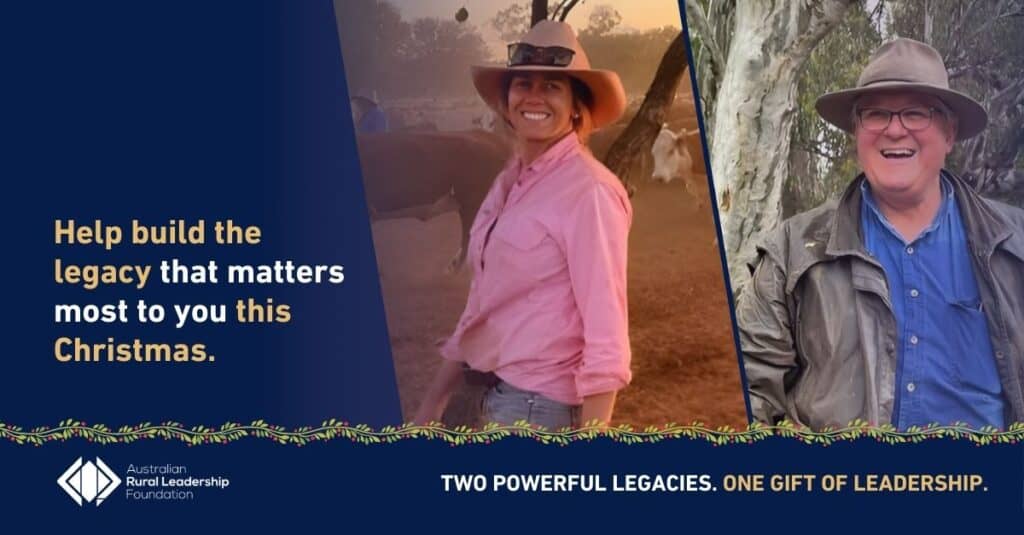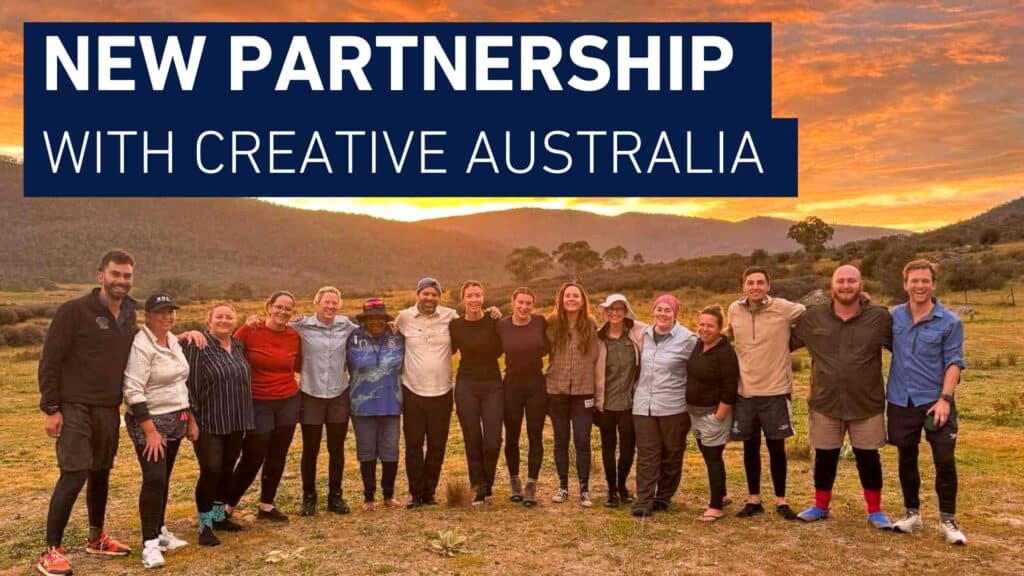The simple desire to learn and speak English more fluently led to a massive leap from Colombia, South America to Australia for Diana Sanchez and her husband. Little did she know the impact that this move would make on Diana’s personal and professional life, and set her on a new leadership journey.
In Colombia, Diana was an agricultural consultant in the cut flower industry, specialising in the use of natural beneficials such as insects to improve production quality and quantity. In her new Australian home in Melbourne, Diana was on a student visa and enjoying the challenges of living and learning in a new culture, but also struggling to obtain fulfilling employment due to her visa classification whilst battling the endless covid-related lockdowns in Victoria at the time.
Not afraid to make the move again, Diana and her husband researched potential locations throughout Australia and Toowoomba, Queensland, came out on top with the opportunity to continue their studies, the strong demand for workers and specifically Diana’s skillset in the Darling Downs.
Toowoomba, Queensland: a fresh start
Since arriving in the Toowoomba region, Diana has found employment in the feed and grain industry. Her workplace features a large number of migrant workers with inevitable communication issues – simple ‘lost in translation’ moments that had far-reaching personal and professional consequences.
“I found this miscommunication interesting and it started to make me wonder how much better the workplace would be if we took more time to truly understand each other and to work on the miscommunication that occurs, even when we speak the same language. It started me on a whole new leadership journey,” Diana said.
Diana was recently nominated for the Australian Rural Leadership Foundation’s’(ARLF’s) TRAIL Emerging Leaders program by The Mulberry Project, a Toowoomba-based not-for-profit that aims to address unemployment in local disadvantaged communities and well-being for migrants. Her scholarship to the seven-day program was funded by the Weis Community Fund, managed by Heritage Bank Charitable Foundation.
“I guess I was a leader back home in Colombia, but it was based on more technical leadership in my workplace and I had a much narrower view of what a leader is and does. There was no opportunity to develop a vision or explore leadership issues in those roles, and the extent of leadership activity was limited by the boundaries of the employer or industry,” she reflects. “I never thought it would be possible for a migrant to be admitted to these types of learning programs and many CALD people like me can feel excluded from these opportunities.”
Key learnings
The TRAIL Emerging Leaders program takes 15 diverse people from across rural and regional Australia through a series of mental, spiritual and physical challenges to explore their own learning and leadership style. The experiential and challenge-based approach to learning, and focus on adaptive and collaborative leadership, helps these future leaders become aware of their personal behaviour and learn how to engage effectively in their workplace, community, and industry.
“Oh, this was a huge challenge for me. I am only small, 150cms tall, and I had to carry a backpack that was almost bigger than me for 40km! My first big learning was that it was fine to ask for help. I was telling people I was OK, even when I wasn’t. I thought I had to do it on my own, until I realised that people genuinely wanted to help. It was incredibly hard, but it made me realise I could last the distance if I paced myself and shared the load,” Diana says.
The impact of communication failures in the workplace
“The other huge learning for me related to the way I communicated when under pressure. This was the first time I was 100 per cent immersed in Aussie culture in the three years I had been in Australia. I had to think, act and speak in English 24/7 and I found that quite difficult. My Spanish mind would speed along at a million miles an hour and yet my ability to translate that into English was so much slower that it was incredibly frustrating and the words just came out wrong and far too slow!
“That’s where the whole issue of miscommunication came in. People reacted to me differently when I was stressed and misunderstood what I was saying. I soon learned that any benefit of what you are saying gets lost, minimised or dismissed by the listener’s inability to understand what you truly mean. At times I wanted to explode as I could not clearly communicate and contribute to the conversation. I learned so much about myself during those seven days, especially how I react to stressful situations and that I need to take the pressure off myself and reflect more.”
What leadership looks like in the future
These key learnings have been invaluable to Diana as she reflects on the experience and considers her next steps on her leadership journey.
“I know I still have a lot to learn, but the TRAIL program has opened my eyes to what and where the opportunities are. My own experiences and issues around communication impacted my time in the program and it makes me wonder about the negative impact communication failures have in the workplace, especially when there are many diverse cultures present.
“Cultural differences may mean that people agree with a course of action when in reality they have misunderstood or their cultural bias means it is not polite to say ‘no’. It may also mean that employers are missing out on really good ideas from their multicultural workers because of language differences or time pressures stopping them from taking the time to truly listen and understand their staff.”
Leadership experience and learnings to make an impact
Diana intends to use her leadership experience and learnings to make an impact in this space.
“Now I have a whole new understanding about the ‘people’ side of leadership and that leading with integrity goes way beyond the workplace. It is just as important in the community, listening to and caring for others. It is not about the ‘status’ of leadership and I now feel my impact can be so much broader,” she says.
“I would like to build bridges between migrants and Aussies in both the workplace and the community. I am not sure how to do this yet, but it is a great opportunity to strengthen rural communities and tap into an even more diverse range of skills and knowledge.”
This also includes encouraging other culturally and linguistically diverse (CALD) people to be part of leadership opportunities such as TRAIL.
“The experience of TRAIL and spending time with the other program participants has created an even deeper respect for rural Australia and the Aussie culture. I feel I have a better understanding of the values and core things that are important in rural people’s lives,” Diana says.
“The TRAIL course touched me very deeply and, through meaningful conversations with the other program participants, it made me think about what I valued most in both life and work. It made me realise I don’t have to have all the answers right now. It is more important just to start the conversation with likeminded people who are willing to help and work together. This will allow me discover the direction of my leadership journey.”
The ARLF is accepting expressions of interest for the 2024 TRAIL Emerging Leaders program.





